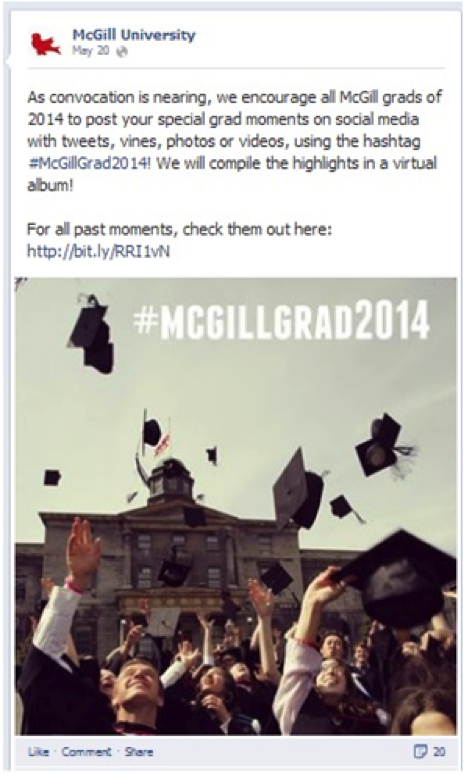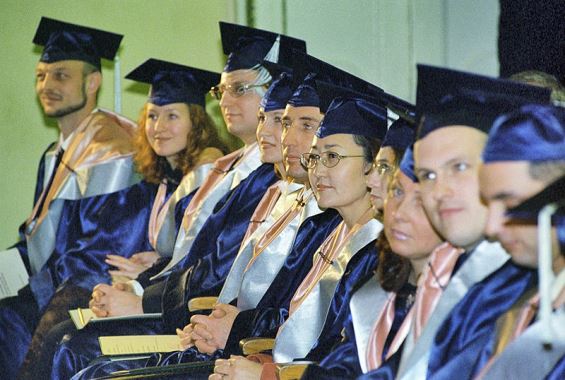With the world’s attention focused on the Sochi Winter Games this month, it is an appropriate occasion to consider the changing educational environment in Russia. The Olympics have already been a catalyst for national development, including educational initiatives such as the recently launched Russian International Olympic University, offering unique sports management training, and a series of Sochi 2014 academic kits dispersed to secondary students across the country. Higher education has been a growing priority for the Putin government in the past few years, which seeks to regain the prestige and elevated international rankings enjoyed during the Soviet era.
Recent reforms have seen the government literally take matters into its own hands, by controversially assuming control of the Russian Academy of Sciences. The nearly 300-year-old research organization’s 436 institutes and 45,000 staff will be managed by a newly established federal agency that reports directly to Putin. The struggling science system and the Academy’s inefficiency has been a major concern but critics protest that fundamental problems remain unaddressed by this stripping of independence. Meanwhile, dramatic changes to federal funding procedures are expected to result in the closure or consolidation of up to 20% of Russia’s 600 universities by the end of this year in efforts to increase efficiency. Corruption has long plagued admissions processes in Russia, where faculty at some universities have been known to collect bribes in exchange for passing examinations.
Putin Signs New Decree to Fund Postgraduate Study Abroad
The Russian labour market is experiencing a skills shortage, fueling demand for general study abroad and a brand new Global Education program that would provide state funding for 3,000 postgraduate students to study overseas over the next three years, as long as they return to Russia to work following completion. Potential engineers, doctors, scientists and other specialists will receive financial support to study at leading international universities included in the world rankings. Applicants focusing on robotic technologies, drone engineering and medical technologies are particularly welcome. A similar initiative was repealed last year amidst doubts that students would return to work for three years after studying, and critics of the latest plan believe that ensuring graduates return will be difficult, despite hefty penalties for non-compliance.
As western education is perceived as more modern and practical, it is hoped that this initiative will increase the exchange of experience between countries, which the Ministry of Education has already encouraged by partnering with MIT to develop a world-class, high-tech graduate school, The Skolkovo Institute of Science and Technology. “Russian universities do not have available training programs for the professionals who are really in demand,” opines Alexander Gross, chief editor of Russian employment service Rabota.ru. “Students receive mainly theoretical knowledge and then do not known how to apply it in practice.”
Russia is still an education destination more than a source country, attracting students mainly from neighbouring former Soviet states but also increasingly China and India, where it has been marketing heavily. Germany is its top destination country but there have been increasing numbers going to the United States, United Kingdom and Canada. There are more Russian schoolchildren enrolled in British boarding schools than students from the U.S., Japan and India combined – believed to be seeking access to top British and American universities. Demand for study abroad remains strong but a sharp economic decline in 2013 may impact travel – the ruble is at a historic low against the euro. However, the employment market appears to be growing and some studies show that an education’s value rises in times of economic crisis.
Entering the Russian Market
As in other countries, the use of student recruitment agents is common in Russia, although managing the sub-agent network across the largest nation in the world has its own challenges. Student priorities regarding geography, preferred degree and cost tend to vary depending on the region and finding the right student-institution match can be challenging. “There are universities that you cannot sell in Moscow, but they will find their students in other regions in Russia,” says Anastassia Romanenko, Managing Director of Insight Lingua, one of Russia’s leading education abroad agencies, with a network of about 500 sub-agencies throughout the former Soviet republic. Rural populations may be more inclined to pursue schools outside of major cities and be more price sensitive, areas with mining or oil development industries may prefer engineering, and southern states may prefer hospitality programs, for example. If working with agents, consider references from colleagues and other educational consultants, choosing accredited AREA or IATC members.
An institution’s reputation and perceived quality of degree programs is of top importance for Russian students. The generalization is that Russians love brands, so as much as possible show off the prestige, quality and high rankings of your school in promotional materials. Cost inevitably is a concern to be considered along with quality, and students value the opportunity to work while completing their studies. Demand for language studies remains very strong, and offering a program such as the University of Vermont’s “Global Gateway”, which features a specially designed curriculum intended to improve academic English in the freshman year while earning college credits, can be a competitive advantage.
The Public Approach
There are growing opportunities to recruit Russian students without the use of agents, particularly as overseas information becomes more readily available with the internet. Conduct sufficient research before participating in educational fairs, remembering that there are significant undertapped market beyond the obvious targets of Moscow and St. Petersburg, with potential to develop grassroots awareness campaigns for your brand. With brochure branding and web development, show off your Russian students on campus and focus on programs and selling points of specific interest to the community.
Example: McGill University has a simple “McGill comes to you” section on their website with their upcoming recruitment visit schedule.
Consider creating a landing page or microsite exclusively in Russian (along with others targeting languages and cultures from other top source countries), featuring brief videos that focus on authentic student testimonials. Leverage your current Russian students and alumni to develop these materials. Also, while it may be difficult to integrate in practice, it is helpful to have an understanding of the peculiarities of the Russian character. It isn’t productive to dwell on stereotypes but there are numerous websites that expand on the supposedly inscrutable “Russian soul”.
“Russian people are altogether spacious people, just like their land, and extremely inclined to the fantastic and disorderly” – Crime and Punishment, Dostoyevsky
Social Media in Russia
Although as of last April there were only 20% of social media users in the population, Russians who are web-connected are more active on social media than any other country, spending more than twice the time as the global average. Their own local social networks – VKontakte.ru and Odnoklassniki – are most popular, with the former integrating file sharing on the site to rival both Facebook and YouTube, and the latter more for reconnecting with old classmates and friends. VK.com is the second most popular social network in Europe, after Facebook.
At the same time, Facebook and Twitter are both very popular in Russia, with the latter exploding in popularity in a very short period of time. To engage with prospective international students with social media marketing, focus on students who have already narrowed their search to your school. Provide exclusive communities to respond to their particular questions administrated by Russian student ambassadors, encouraging introductions and networking opportunities, language study dates and relevant events.
Establishing contact with local agency networks and partnerships with Russian institutions can further solidify your brand within Russia, including exchange programs and joint research initiatives. Russia is increasingly looking outwards, seeking global connections and opportunities for participating on the world stage, so schools should consider looking closer at including this giant between continents on their international admissions radar if it isn’t already.
How has your school found success recruiting Russian students?










